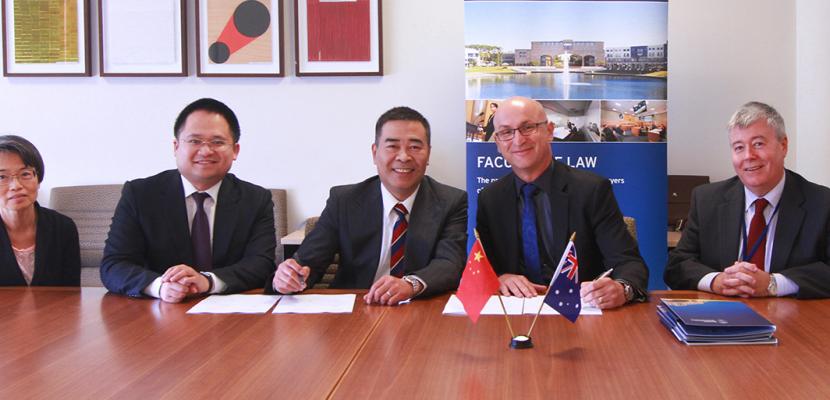
The Faculty of Law at Bond University has become the first law school in Australia to secure a partnership with one of China's top specialist economics and law institutions, paving the way for more Chinese students to undertake postgraduate law programs at the Gold Coast university.
A five year partnership agreement between Bond and Zhongnan University of Economics and Law (ZUEL), located in Wuhan in China's Hubei Province, has officially been signed.
Under the partnership agreement, Bond academics will travel each year to ZUEL to deliver law subjects in English, allowing Chinese students who complete those subjects to articulate into Bond's Master of Laws and Juris Doctor programs.
The agreement also facilitates collaborative research partnerships between the two universities.
Bond University Acting Executive Dean of Law, Professor Nick James, said the agreement would make Bond a top choice for Chinese students wanting to undertake postgraduate law programs abroad.
"It is a real coup to be aligned with such a well-respected university, considered one of China's leading institutions. The Zhongnan law school is Asia’s largest and a Top 10 law school in China,” he said.
"As ZUEL's first Australian institutional partner in law, and one of only three universities in the world with similar arrangements with ZUEL, the agreement effectively puts Bond at the forefront for Chinese law students looking to complete postgraduate study in Australia.
"Law firms all over the world are increasingly looking for graduates who can demonstrate transnational and global expertise and experience, so this initiative is an important one."
Professor James said the partnership was particularly timely, given the increasing importance of relations between Australia and China and the recent growth in Chinese investment in Australia, particularly in Queensland and on the Gold Coast.
"The demand for bilingual lawyers with an understanding of the law in both countries is increasing," he said.
"On the Gold Coast alone, there are many major development projects being spearheaded by Chinese interests, so it is likely that this demand will continue to increase."
ENDS